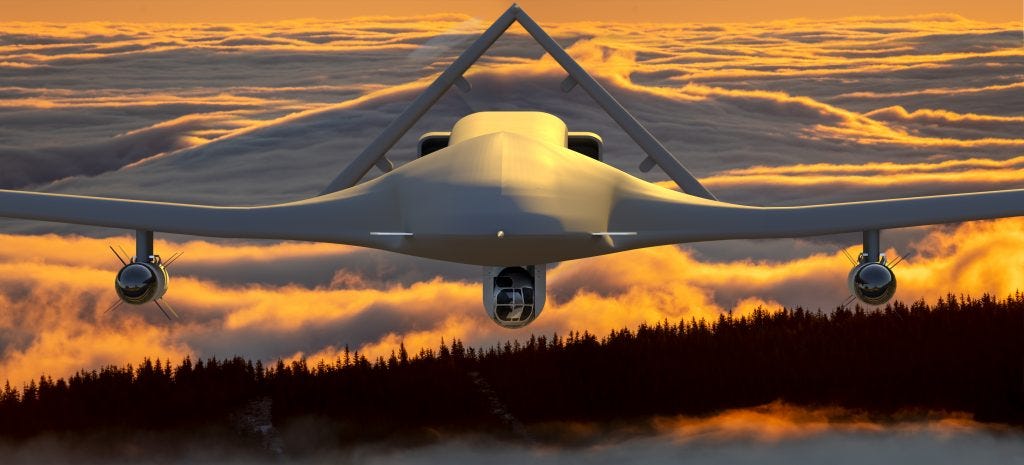Did NATO sell-out Canada’s effort to stop illicit weapons deals with Turkey?
Preventing war crimes may come second to NATO expansion
Researchers and experts at Project Ploughshares are blowing the whistle on a potential shift in Canada’s policy which could restart weapons exports to Turkey.
Canada banned weapons exports to our NATO ally after Turkish-built drones made with Canadian parts started showing up in terrible conflicts across the Middle East.
If Canada drops its embargo and allows arms shipments to resume, it won’t be because Turkey’s authoritarian President Tayyip Erdogan has had a change of heart over crimes against civilians using his drones loaded with Canadian-built tech.
No, Canada is getting wrapped up in backroom deals being worked out at the highest levels of NATO, Washington, and Ankara. Lifting sanctions against Turkey may be part of a wider bargain hashed out to convince President Erdoganto to drop his veto of Sweden joining NATO.
Each member of the 31-country military alliance holds a veto over new members, and Turkey has been furious over the United States disallowing the sale of F-35 and F-16 fighters to Turkey, and some Nordic states’ previous concerns expressed over Turkey’s human rights record in its domestic conflict against the Kurds.
“A clearer picture is emerging of some of the trade-offs that Turkey is expecting in return for accepting Sweden’s membership to NATO,” write Cesar Jaramillo and Kelsey Gallagher in The Globe and Mail this week. “These reportedly include facilitating Turkey’s path to joining the European Union and the potential reversal of existing arms embargoes against Turkey, including the unfreezing of negotiations around Canada’s ban on exports of military equipment to the country.”
Turkey’s flagrant disregard for the conduct of the forces it has been supplying arms to finally forced the Canadian government to act. Jaramillo and Gallagher paint a damning picture:
Turkey began deploying Bayraktar TB2 drones equipped with Canadian-made L3Harris Wescam surveillance and targeting sensors to conduct airstrikes in repeat combat operations in Iraq and Syria. Credible human rights monitors have charged Turkey with failing to discriminate between combatants and civilians during such aerial incursions, which have included attacks on schools, hospitals and other critical civilian infrastructure.
In 2019, Turkey also shipped a number of these drones – illicitly equipped with the same Canadian targeting sensors – to Libya, in blatant violation of a UN arms embargo. The next year, Turkey again diverted these sensors, this time on drones for allied Azerbaijan in its assault on the Nagorno-Karabakh region, where Azerbaijan’s forces are alleged to have committed war crimes.

In 2021, Canada finally acted to suspend and eventually cancel these arms exports to Turkey after their illicit diversion in the context of the Nagorno-Karabakh conflict. These were not arbitrary measures; they were grounded in the Erdogan government’s consistent failure to act as a trustworthy recipient of Canadian military goods. These findings were reflected in a report published by the government of Canada in April, 2021, which conceded that Turkey’s illicit transfer of arms constituted diversion.
“Reinstating arms exports to Turkey would mark a disheartening step backward for Canada’s arms controls regime,” they write. “By overlooking Turkey’s pattern of brazen misuse and diversion of Canadian military goods so as to gain a bargaining chip in a backroom deal, Ottawa would be denying the compelling reasons for which the embargo was originally imposed and signal a disregard for Canada’s domestic and international obligations.”
Read "Canada risks letting Turkey off the hook, by prioritizing politics over arms control,” by Cesar Jaramillo and Kelsey Gallagher, published by The Globe and Mail on July 26, 2023
(Cover: November 16, 2015 Antalya, Turkey. Prime Minister Justin Trudeau meets with President Recep Tayyip Erdoğan of Turkey on the margins of the G20 Summit. Via http://www.pm.gc.ca)

